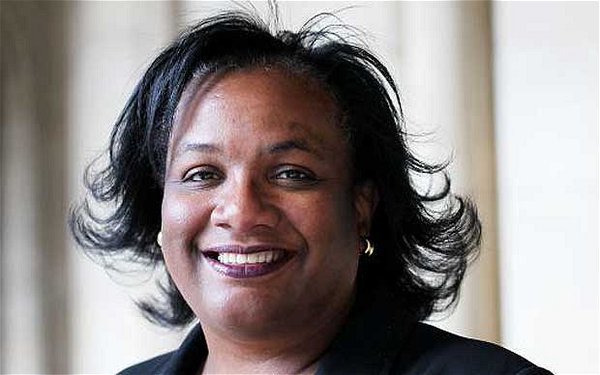Diane Abbott received half of all abusive tweets sent to women MPs

…
The shadow home secretary experienced the vast majority of online abuse sent to women MPs, and had 10 times more abusive tweets sent to her than any other figure in the run up to the election. She also suffered eight times more abuse in the whole six month period which was analysed.
The research, conducted by Amnesty International, looked at messages sent in the period between January 1 and June 8. In this time she received almost a third of all the abuse directed at women political figures.
The list of the five female politicians who received the most abuse included two other Labour MPs, with Emily Thornberry, the shadow foreign secretary, and Jess Phillips, chair of the women’s PLP, coming in third and fourth respectively. Joanna Cherry, SNP MP, got the second most abuse and Anna Soubry, Conservative MP for Broxtowe and a prominent Europhile, being placed fifth in the ranking.
However, Abbott’s level of abuse far outstrips those mentioned, with the trailblazing Hackney North MP receiving 31.6 per cent of abusive tweets, and the rest of the top five getting nearer three per cent of abusive tweets. She also received more abusive tweets than all the women in the SNP and Conservative party combined in the six month period.
Ethnic minority women politicians, excluding Abbott, received 35 per cent more abuse than white women. Some 5.8 per cent of all tweets sent mentioning Abbott’s twitter handle were classified as abusive.
The report found that “intersectional discrimination” meant that a figure who had more than one identity, e.g. if LGBT, BAME or disabled, meant that they were then more likely to face abuse.
In a New Statesman article describing the report, Amnesty’s researcher in technology and human rights Azmina Dhrodia writes: “Diane Abbott standing out in our analysis is an acute example of how intersectional discrimination works. The abuse that she faces is not just sexist and misogynistic; it’s also incredibly racist.”
“Nearly 90 years after women won the right to vote, there is a real danger that the high levels of online abuse against women MPs will have a chilling effect on women taking part in public life — particularly women of colour. This is not only detrimental in terms of the possible long-term effect on the representation of women in politics in the UK but also continues to deepen societal inequality between genders.”
©LabourList